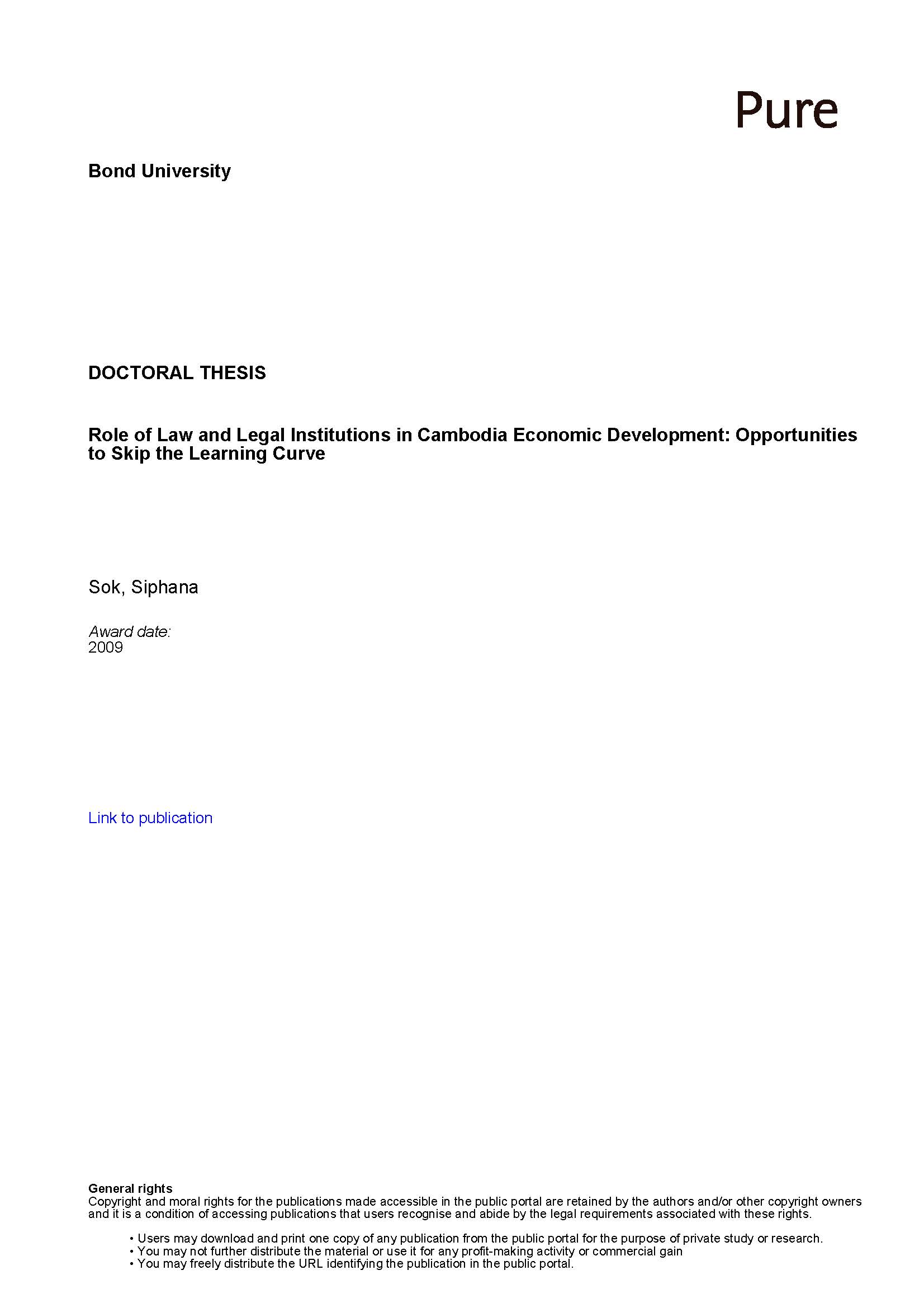Role of Law and Legal Institutions in Cambodia Economic Development: Opportunities to Skip the Learning Curve
By H.E. Dr. Academician SOK Siphana.
Summary of The Thesis: “This thesis advances the view that, in an era of regionalization and globalization, Cambodia, as a least developed country, can deliver sustained economic growth, social stability and development if it can develop a coherent set of economic policies linked to the development of a functional and credible legal system. The scope for ‘catch up’ or ‘skip the learning curve’ is possible provided Cambodia can draw from the experiences – policies, legal system and institutions that have been discovered, tried, tested and refined – of other countries with similar background and with proven track records of rapid economic growth. In the context of Asian economic growth and development over the past 30 years, policy choices have been shown to be crucial for achieving high growth rates. Experience of the high performing economies in Asia over the past decades is the best evidence that those with relatively low income levels are, with the right policy and institutional choices, able to catch up with the richer ones.
The Cambodian experience, tested against four hypotheses (convergence, divergence, differentiation and irrelevance hypotheses), demonstrates a series of complex causal links and effects intertwined between law, economics, politics, history and culture. Arguably, the thesis seeks first to understand, through a multi-dimentional lens, la problématique of Cambodia’s long term economic development, and second to provide a long term coherent systemic solutions to the wider issues of nation building…….”
Download PDF

